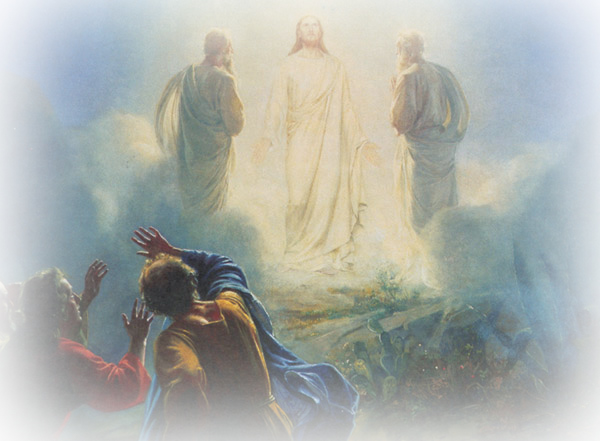Peter’s badly chosen comment at the moment of Christ’s revealed glory brought a screeching halt to the supernatural experience for him and his companions. When God instructed him to listen to Jesus, he and his fellow disciples fell to the ground in terror. After that, they didn’t hear a thing.
When they came to, it was all over. Jesus’ clothes had lost their brightness, and his shining face had returned to normal. Were Jesus’ purposes (in bringing Peter, James and John along) accomplished? We don’t know how long his face shone and his clothes were as lightning, but we do know he wanted these 3 men to see him that way. Did they learn anything?
Maybe since the crucifixion was soon to happen, he wanted them to get a glimpse of what would come after his suffering. Or maybe he wanted them to visualize that he was not merely the man they’d lived with but the God-man, deserving of God’s glory.
Though they didn’t listen well that day, they saw what Jesus wanted them to see. As for Peter hoping to hold onto Jesus, Moses and Elijah, his comment might not have been as nonsensical as it first seemed.
The whole incident reminded me of a poignant dream I had about Nate after he died. (One Year Ago: Part III and IV, Oct. 18 & 19, 2010) In the dream I knew Nate had entered a supernatural world, but when I saw him back on earth, I clung to him, just like Peter wanted to hold Jesus, Moses and Elijah. My emotions were burning with desire, and if I couldn’t keep Nate from leaving my world, I thought I might collapse.
Peter must have felt the same way. He was fervently attached to Jesus and sensed his teacher and friend would soon slip away. He might have made his 3-tents-statement hoping to prolong the moment and borrow time to think. He had no way of knowing what was ahead, how/when Jesus would leave the earth or if/when he’d be back.
Interestingly, Jesus didn’t resent Peter’s off-the-subject statement or his attempt to usurp the lead or even his failure to listen. Instead, after Moses and Elijah had gone, he approached all 3 of them and touched them tenderly, coaxing them up off the ground, away from fear, and back toward him. Although they’d missed virtually everything that had been said, they apparently got the drift enough to satisfy Jesus, because as they hiked back down the mountain, he told them to keep it all a secret.
Jesus knows we long for him. It’s even possible he sees our desire as an act of adoration and worship. If that’s the case, Peter’s outburst turns out to be a pretty good one after all.
Peter said to Jesus, “Lord, it is good for us to be here. If you wish, I will put up three shelters—one for you, one for Moses and one for Elijah.” (Matthew 17:4)



